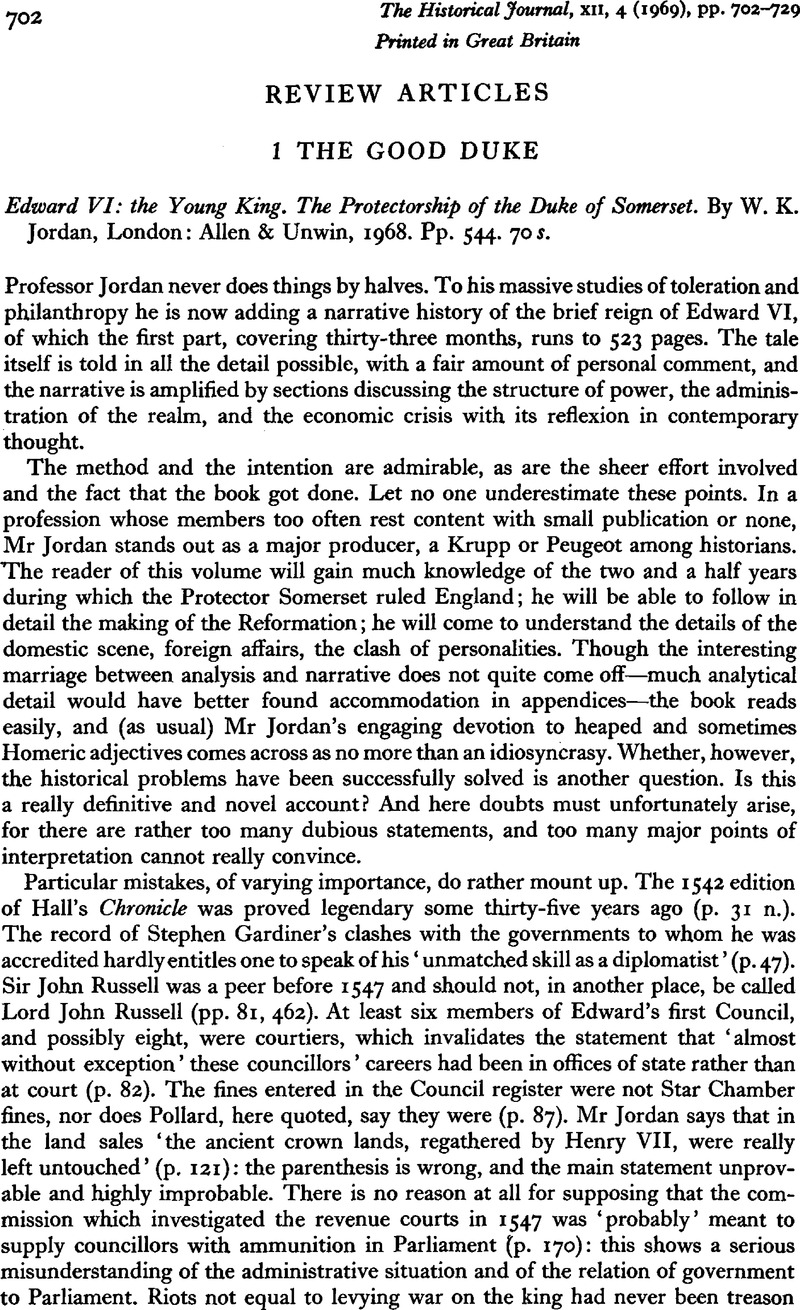Article contents
1. The Good Duke
Published online by Cambridge University Press: 11 February 2009
Abstract

- Type
- Review Articles
- Information
- Copyright
- Copyright © Cambridge University Press 1969
References
1 Pollard, A.F. got this point right: England under the Protector Somerset (1900), pp. 233,Google Scholar 243, 280.
2 Cf. Bush, M.L., ‘The Lisle-Seymour Land Disputes,’ Historical Journal, IX (1966),Google Scholar 255 ff. Dr Bush's unpublished Cambridge dissertation on Somerset's early career establishes the case more fully.
3 Hembry, P.M.The Bishops of Bath and Wells 1540–1640 (London, 1967),Google Scholar pp. 105 ff.
4 The Protector's conversion of all tenures on his estates to copyhold (p. 306) may have been as generous as is here claimed, but the complications of copyhold law and practice were such as to make any simple identification of copyhold with generosity problematical. This needs more Somerstudy. The disparking of Hampton Court may have sprung from consideration for the poor (p. 415), but the Council minute spoke also of loss of rents and the expenses of maintenance (A.P.C. 11, 190).
5 Cf. Elton, G.R., ‘Government by Edict?,’ Historical Journal, VIII (1965),Google Scholar 266 ff.
6 An interesting constitutional point is raised by the opinion (cited p. 168) that a treaty with France needed to be ratified by Parliament. The opinion was offered not by Somerset, as Mr Jordan alleges, but by the Council, a point correctly made by Pollard whom Mr Jordan says he here follows. Presumably parliamentary ratification was thought necessary during a minority.
7 Hughes, P.L. and Larkin, J.F. (eds.), Tudor Royal Proclamations (New Haven, 1965), 1, no. 272.Google Scholar
8 Ibid. nos. 281, 292, 299.
9 Ibid. nos. 284, 286, 323, 328,
- 1
- Cited by




